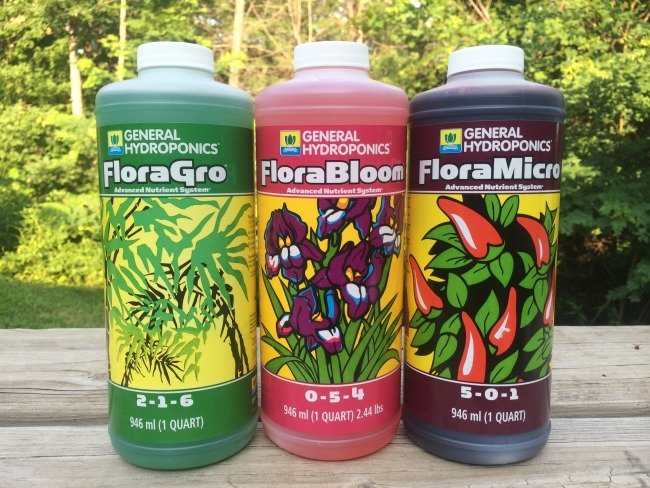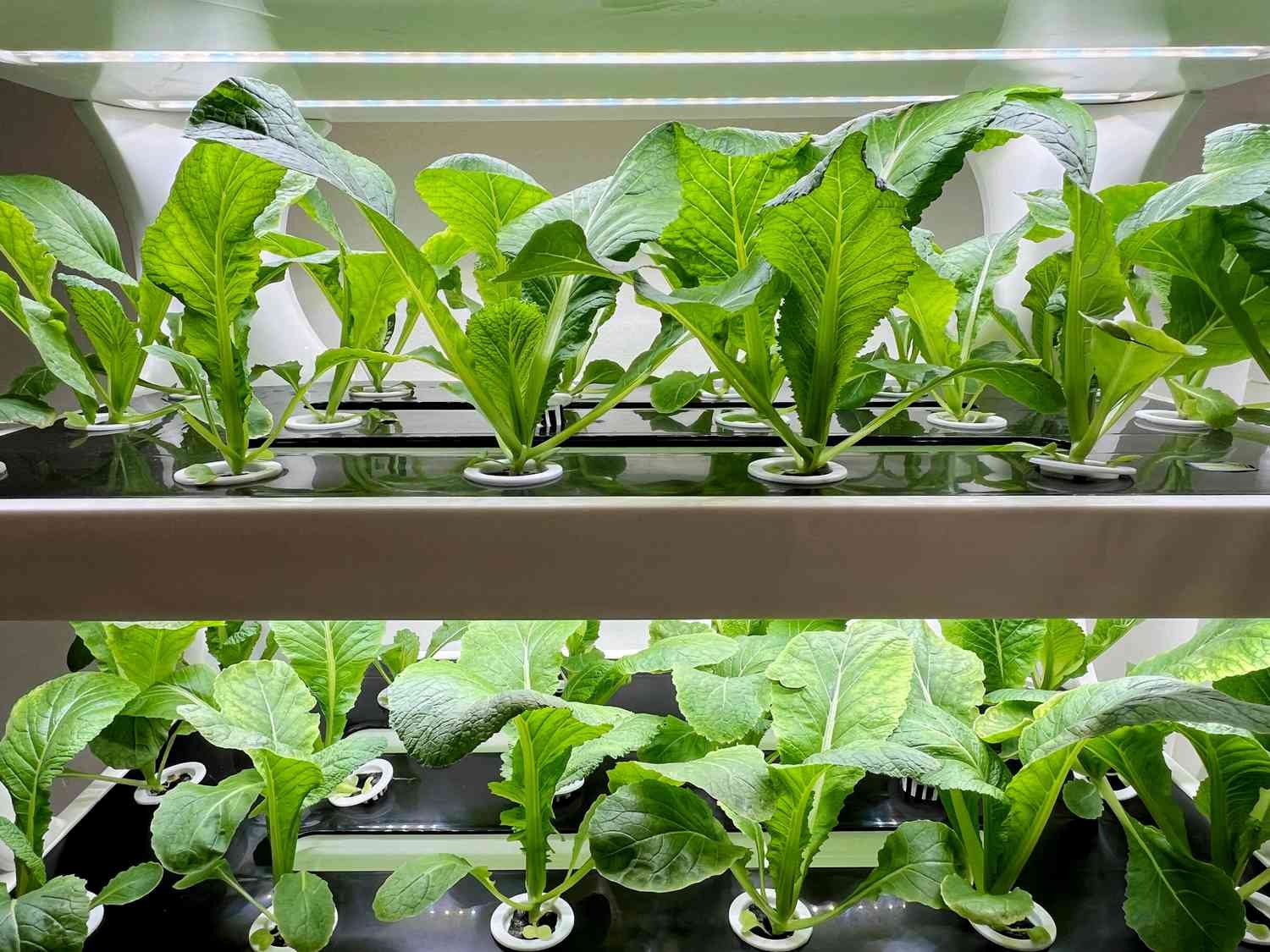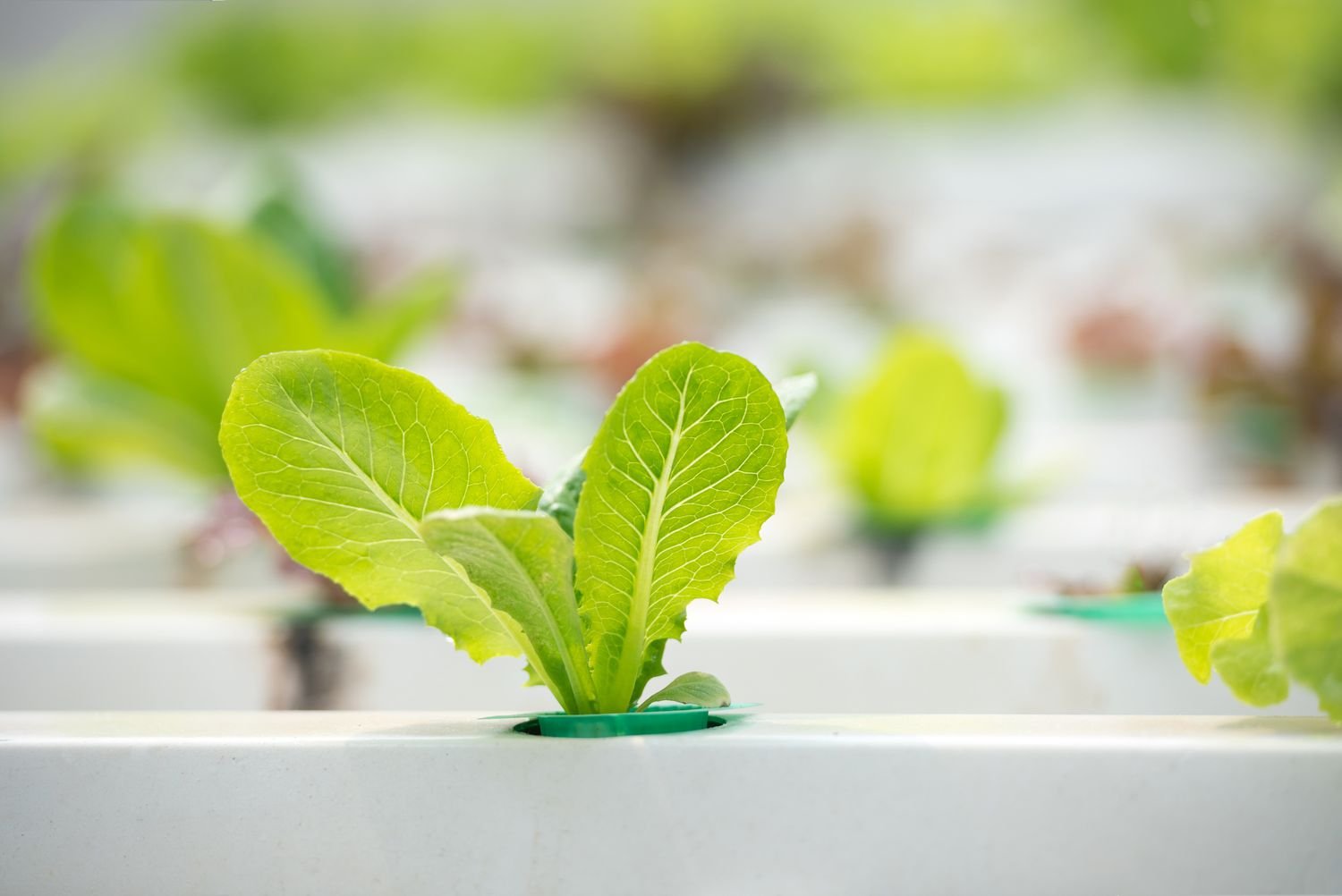Hydroponics nutrients are crucial for plant growth in soilless systems. They deliver essential minerals directly to plant roots.
Understanding these nutrients can enhance your hydroponics success. Imagine growing plants without soil. That’s hydroponics—a method where nutrients are dissolved in water. These nutrients serve as the plant’s food, providing essential elements for growth. In hydroponic systems, nutrients play a critical role in plant health and yield.
It’s important to know which nutrients are needed and in what amounts. This knowledge helps you tailor feeding solutions to your plants’ needs. Whether you’re new to hydroponics or looking to improve your setup, understanding nutrients is key. Explore how these vital components affect plant growth and learn how to optimize your nutrient mixes for flourishing results.
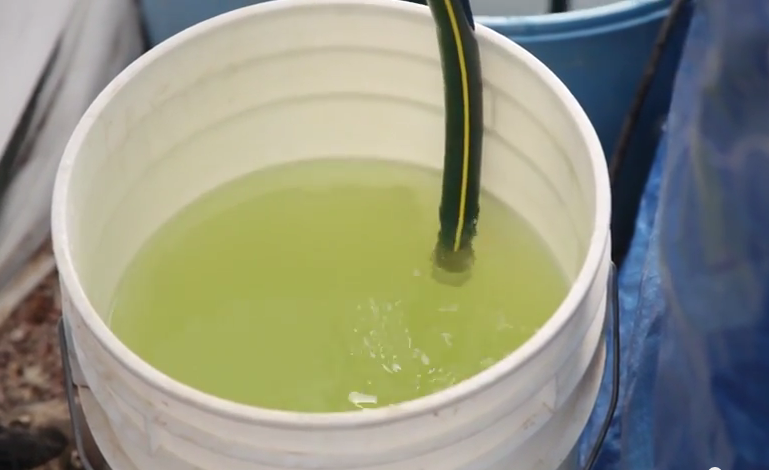
Credit: zipgrow.com
Introduction To Hydroponics Nutrients
Welcome to the world of hydroponics nutrients! If you’ve ever dreamed of growing plants without soil, you’re in the right place. Hydroponics is like gardening with a twist, where plants thrive using nutrient-rich water solutions. But what makes these nutrients so vital? Let’s dive into the essentials you need to know to keep your hydroponic garden flourishing.
Why Nutrients Matter
Imagine trying to bake a cake without flour or sugar. Just like ingredients are crucial for a cake, nutrients are essential for your plants. They provide the minerals and vitamins plants need to grow, bloom, and produce food. Without the right nutrients, your plants might struggle to survive.
Think about the nutrients as your plant’s diet. Just as you need a balanced diet for good health, plants need a mix of nutrients. These include nitrogen, potassium, phosphorus, and trace elements like magnesium and calcium. Each nutrient plays a unique role in plant growth, from developing strong roots to producing vibrant flowers.
Basic Concepts Of Hydroponics
Hydroponics is a fascinating method of growing plants without traditional soil. Instead, plants get their nutrients from a water-based solution. This approach is efficient and allows for controlled growing conditions, which can be adjusted for optimal plant growth.
At its core, hydroponics means you have control. You regulate the nutrients, light, and water your plants receive. This control leads to faster growth and higher yields compared to soil gardening. Plus, hydroponics can be done indoors, making it a popular choice for urban gardeners.
One personal tip: When I started my hydroponics journey, I was amazed at how quickly my lettuce grew. In just a few weeks, I had fresh greens ready for a salad. It was a game-changer for my kitchen and motivated me to explore more crops.
Are you ready to try hydroponics? What will you grow first? Lettuce, herbs, or maybe strawberries? The possibilities are endless, and your garden can become a lush oasis with the right nutrients.
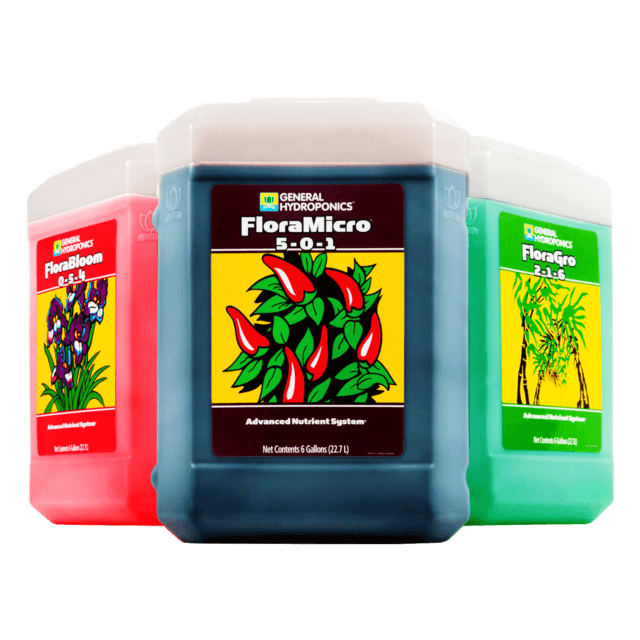
Credit: generalhydroponics.com
Key Nutrients For Plant Growth
Understanding the key nutrients for plant growth in hydroponics is crucial for nurturing healthy, thriving plants. Just like humans need a balanced diet, plants require a specific set of nutrients to grow and produce. If you’re diving into hydroponics, knowing what nutrients to provide can be the difference between a flourishing garden and a struggling one.
Macronutrients Overview
Macronutrients are the primary building blocks for plant development. These include nitrogen, phosphorus, and potassium, often abbreviated as N-P-K. Nitrogen promotes lush, leafy growth, making it essential for plants like lettuce or spinach.
Phosphorus is vital for root development and flowering. It’s the go-to nutrient when you want your plants to bloom beautifully. Potassium helps in overall plant health, improving disease resistance and water uptake.
Think of these macronutrients as the main course in a meal. Without them, your plants might lack the vigor to grow robustly. Do you remember the time your tomatoes didn’t ripen as expected? It might have been a lack of potassium!
Micronutrients Explained
Micronutrients, while needed in smaller amounts, are no less important. These include iron, manganese, zinc, copper, molybdenum, boron, and chlorine. Iron plays a critical role in chlorophyll production, which is essential for photosynthesis.
Have you ever noticed yellowing leaves? That could be an iron deficiency. Manganese aids in enzyme activation for growth processes, while zinc is crucial for hormone regulation and enzyme function.
While these nutrients might seem like the side dishes, they’re indispensable for complete plant health. Have you ever wondered why plants sometimes don’t respond to fertilizers as expected? Micronutrients might be the missing piece of the puzzle.
Ensuring your hydroponic system has the right balance of macro and micronutrients is key. Regularly check your nutrient solutions and make adjustments as needed. Are you monitoring the nutrient levels in your system? This simple step can lead to healthier plants and bigger yields.
Role Of Ph And Electrical Conductivity
Hydroponics is a unique way to grow plants without soil. Nutrients play a crucial role. They ensure plants get what they need. Two factors, pH and electrical conductivity (EC), are vital. They help manage nutrient availability and absorption. Understanding these can improve plant health and yield.
Importance Of Ph Levels
pH levels affect nutrient absorption in plants. Plants prefer a specific pH range. For most, this is between 5.5 and 6.5. Outside this range, nutrient uptake decreases. Plants may show signs of deficiency. Testing pH regularly is essential. It ensures the growing environment stays optimal. Adjusting pH levels can correct imbalances. This supports healthy plant growth.
Understanding Electrical Conductivity
Electrical conductivity measures the nutrient concentration. It indicates the strength of the nutrient solution. High EC levels mean more nutrients. Low EC may suggest a lack of nutrients. Both extremes can harm plants. Regular EC checks ensure balance. An ideal EC range varies with plant types. Monitoring helps maintain this range. Adjust nutrient solutions based on EC readings. It promotes better plant development.

Credit: www.amazon.com
Choosing The Right Nutrient Solution
Hydroponics gardening requires the right nutrient solution for success. Plants grow without soil, so nutrients are vital. These nutrients replace the natural ones found in soil. The right choice ensures healthy plant growth and high yields. Beginners might find this task challenging. But understanding the basics makes it easier.
Factors To Consider
First, understand your plant type. Different plants need different nutrients. Leafy greens and fruits have varying requirements. Next, consider the growth stage. Young plants need different nutrients than mature ones. Water quality also plays a role. Test your water for impurities. pH levels are crucial. Keep them balanced for nutrient absorption. Finally, consider your budget. Nutrient solutions vary in price.
Popular Nutrient Brands
Several brands offer quality nutrient solutions. General Hydroponics is well-known. They provide balanced nutrients for various plants. Advanced Nutrients offers solutions for all growth stages. Their products are user-friendly. FoxFarm is another trusted name. Their nutrients promote healthy growth and strong roots. Botanicare offers organic options. Perfect for those seeking natural solutions.
Customizing Nutrient Solutions
Crafting the right mix of nutrients is crucial for healthy hydroponic plants. Each plant type requires a unique blend. Customizing these solutions supports growth and yield, ensuring plants receive essential minerals directly.
Customizing nutrient solutions in hydroponics can make all the difference in your plant growth journey. By tailoring nutrients to meet specific plant needs, you enhance growth, health, and yield. Imagine having the power to adjust what your plants receive at each growth stage—it’s like being a chef who crafts the perfect meal for each guest. But how do you start customizing these solutions effectively?Tailoring To Specific Plants
Every plant species has its unique nutrient requirements. Some might need more nitrogen, while others thrive on potassium. Think about your favorite plants. Do you know what makes them flourish? Understanding these needs is crucial for crafting a nutrient mix that matches their preferences. Consider the differences between leafy greens and flowering plants. Leafy greens generally require more nitrogen to promote lush foliage. On the other hand, flowering plants may benefit from higher phosphorus levels to support blooming. Research your plants and adjust your nutrient solutions accordingly.Adjusting For Growth Stages
Plants go through various growth stages, and each stage demands different nutrients. During the seedling phase, plants usually need a balanced mix, focusing on root development. As they transition to the vegetative stage, they often require more nitrogen to build strong stems and leaves. Have you noticed how your plants seem to change overnight? This is where customizing nutrient solutions for each growth stage comes in. When plants reach the flowering or fruiting stages, they typically need an increased dose of phosphorus and potassium. Create a simple schedule for nutrient adjustments. This could be a weekly plan where you tweak the nutrient solution based on the current growth stage. Keep an eye on your plants’ response and make necessary changes. Engage with your plants and observe their growth patterns. Customizing nutrient solutions isn’t just for the experts. It’s an exciting journey that allows you to connect with your plants on a deeper level. What tweaks will you make to ensure your garden flourishes?Common Nutrient Deficiencies
Hydroponics involves growing plants without soil, which can lead to nutrient deficiencies. Essential elements like nitrogen, potassium, and phosphorus must be carefully balanced. Proper nutrient management ensures healthy growth and prevents issues like stunted plants or yellow leaves.
Hydroponics is an innovative way to grow plants without soil, but it requires precise nutrient management. Understanding common nutrient deficiencies is crucial for successful hydroponic gardening. Deficiencies can stunt plant growth and affect yield. Let’s dive into the telltale signs and practical solutions to keep your plants thriving.Signs Of Deficiency
Recognizing nutrient deficiencies early can save your plants. Look for yellowing leaves, which often indicate a nitrogen deficiency. Are your plants experiencing stunted growth? This might be due to a lack of phosphorus. Brown spots on leaves could point to a potassium shortfall. Sometimes, deficiencies can be confusing. Magnesium and calcium deficiencies can mimic each other, leading to interveinal chlorosis. Keep a watchful eye on these signs. Having a nutrient deficiency chart handy can be a lifesaver. It’s like having a plant doctor at your fingertips.Solutions To Deficiency Problems
Once you spot a deficiency, act quickly. For nitrogen deficiencies, you can add a nitrogen-rich solution to your nutrient mix. If phosphorus is the issue, ensure your fertilizer includes phosphoric acid. Potassium shortages? Try adding a potassium sulfate supplement. Calcium and magnesium can be balanced by using calcium nitrate or Epsom salts. Adjusting the pH of your nutrient solution is also vital. A pH of 5.5 to 6.5 is optimal for nutrient uptake. Experiment with different brands of nutrients to find what works best for your setup. Remember, each plant is unique and may require specific adjustments. Have you ever thought about how your water source might affect nutrient absorption? It’s worth considering. With these tips, your hydroponic garden can flourish. Keep a keen eye on your plants, and they’ll reward you with a bountiful harvest. Are there any nutrient deficiencies you’ve struggled with in your hydroponic journey? Share your experiences to help others in the community.Organic Vs. Synthetic Nutrients
Choosing the right nutrients is vital in hydroponics. The debate between organic and synthetic nutrients often confuses growers. Both have their unique advantages and drawbacks. Understanding these can lead to healthier plants and better yields. Let’s explore each type to help you decide which suits your needs best.
Pros And Cons Of Organic Nutrients
Organic nutrients come from natural sources. They include compost, manure, and bone meal. These nutrients improve soil health. They also boost plant growth with essential elements.
Organic options are environmentally friendly. They break down slowly, providing a steady nutrient supply. This can improve plant taste and health. However, they might not always meet the precise needs of hydroponics systems.
Organic nutrients can be inconsistent. Their nutrient levels vary batch by batch. They may also introduce unwanted pathogens or pests. These can harm your plants if not managed properly.
Advantages Of Synthetic Nutrients
Synthetic nutrients are man-made. They provide specific nutrient ratios for plants. This precision allows growers to tailor nutrients for different growth stages. Synthetic options ensure consistent results every time.
They dissolve quickly, making them ideal for hydroponics. This ensures immediate nutrient availability for plants. Synthetic nutrients are also free from pathogens. This reduces the risk of diseases in your hydroponic system.
While synthetic nutrients are efficient, they can impact the environment. They can cause pollution if not used responsibly. Despite this, their benefits in controlled environments are significant.
Tips For Optimal Nutrient Management
Growing plants using hydroponics can be a thrilling and rewarding experience. However, managing the nutrients in your system is crucial for successful plant growth. Proper nutrient management ensures your plants receive the right mix of elements they need to thrive. Below are practical tips to help you maintain optimal nutrient levels in your hydroponic system.
Monitoring And Adjusting Nutrients
Regularly monitor the nutrient levels in your solution to keep your plants healthy. Use a digital meter to check the electrical conductivity (EC) or total dissolved solids (TDS) of the solution. This tells you how much nutrient is available to the plants.
Adjust the nutrient solution when readings are too high or too low. High EC can lead to nutrient burn, while low EC might cause deficiencies. Don’t guess—use precise measurements and follow guidelines specific to the type of plants you’re growing.
Keeping a log of your readings can help you track changes and make informed decisions. Have you noticed any patterns or anomalies in your readings? This might provide insights into your system’s needs and help you optimize your setup.
Maintaining A Balanced System
Balance is key in hydroponics. Nutrients interact, and an excess or deficiency of one can impact others. Regularly test pH levels to ensure nutrients are available to the plants. A pH that is too high or too low can lock out essential nutrients.
Did you know that the ideal pH range for most hydroponic plants is between 5.5 and 6.5? Staying within this range can significantly enhance nutrient uptake. Use pH adjusters to maintain this balance.
Consider using a nutrient calculator or app to help with balancing nutrients. These tools take the guesswork out and provide a tailored plan for your specific plants and conditions. How often do you reassess your nutrient balance? Regular checks can prevent issues before they affect your plants.
By focusing on these tips, you can create a thriving hydroponic environment. Have you tried any of these strategies? If not, give them a shot and watch your plants flourish!
Frequently Asked Questions
What Nutrients Are Best For Hydroponics?
Essential nutrients for hydroponics include nitrogen, phosphorus, potassium, calcium, magnesium, and sulfur. Micronutrients like iron, manganese, zinc, copper, molybdenum, boron, and chlorine are also vital. These nutrients support plant growth and development in a soil-less system. Balanced nutrient solutions ensure healthy plants and optimal yields.
Can I Make My Own Hydroponic Nutrient Solution?
Yes, you can create your own hydroponic nutrient solution. Use water-soluble fertilizers and essential minerals. Ensure a balanced mix of nitrogen, phosphorus, and potassium. Regularly monitor pH levels for optimal growth. Homemade solutions offer customization, but require precise measurements for plant health.
What Are The 5 Disadvantages Of Hydroponics?
Hydroponics can be costly to set up and maintain. Systems require constant monitoring and management. Electrical failures can disrupt plant growth. Expertise is needed for successful operation. Limited crop variety can be grown effectively.
How Often Do I Add Nutrients To My Hydroponics?
Add nutrients to your hydroponics system weekly. Monitor plant growth and adjust nutrient levels as needed. Regularly check pH and electrical conductivity for optimal results. Avoid overfeeding to prevent nutrient burn. Ensure proper nutrient balance for healthy plant development. Follow guidelines for specific plant types and growth stages.
Conclusion
Hydroponics nutrients play a key role in plant growth. Balanced nutrients ensure healthy plants. They help in faster growth and better yields. Choosing the right mix is crucial for success. Keep an eye on nutrient levels. Adjust them as your plants grow.
This helps avoid nutrient deficiencies. Remember, each plant has unique needs. Understanding these needs can improve your hydroponic garden. Experiment with different nutrient mixes. Find what works best for your plants. With the right nutrients, your hydroponic garden can thrive.
Enjoy watching your plants grow strong and healthy. Happy gardening!
